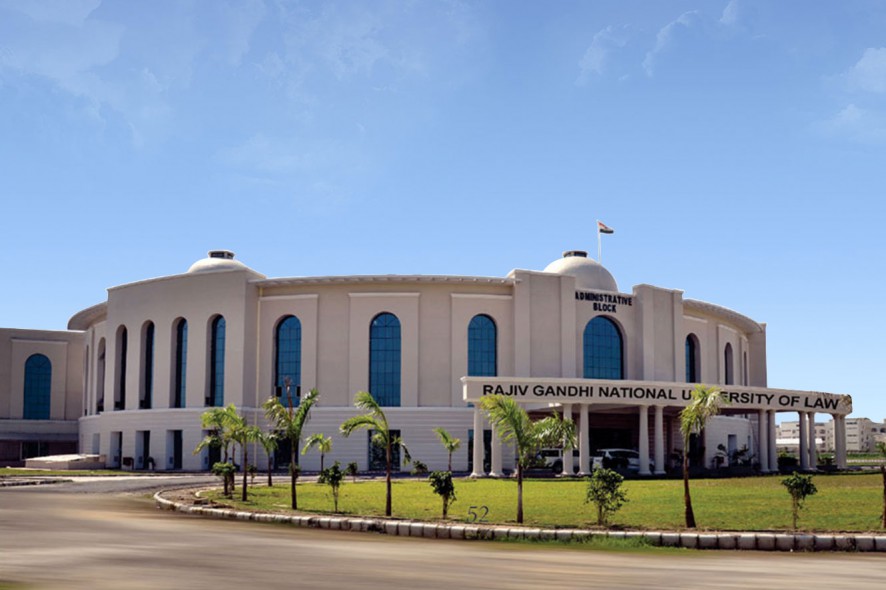The RGNUL Student Research Review (RSRR) is a bi-annual, student-run, blind peer-reviewed legal journal based at Rajiv Gandhi National University of Law, Punjab. In addition to this, RSRR began with its RSRR Blog Series in 2017.
The Editorial Board in association with Nishith Desai Associates seeks to publish its ‘Call for Blogs’ through your website, so as to spread awareness among law students, academicians, and professionals and welcome their contribution to the upcoming edition.
About RSRR
The RGNUL Student Research Review Journal is a bi-annual, student-run, blind peer-reviewed journal based at Rajiv Gandhi National University of Law, Punjab. It is the flagship journal managed by the students of the University. It was founded with the objective of facilitating novel ideas and a research conducive environment. RSRR has also come out with its Blog Series which publishes blogs on different contemporary issues of law. The RSRR Blog Series was named one of the top 35 Constitutional Law Blogs by Feedspot. It has been chosen from thousands of options based upon the relevance and influence of the blog, among other factors.
The Editorial Board in association with Nishith Desai Associates invites submissions for the RSRR Blog Series on the theme “Digital Healthcare in India”.
Background
Innovation in Information and Communications Technology (ICT), as well as other forms of digitalised products and services, is increasing at a galloping rate. This has led to a drastic change in the functioning of many industries, including healthcare, where self-monitoring healthcare devices and e-pharmacies are being used to transform medical services. A shift toward greater patient engagement, increase in chronic diseases and availability and growth of modern technology are some of the reasons why digital healthcare is now being touted as the future of global health.
As the world grapples with the COVID-19 pandemic, there is an increase in the use of telemedicine and mHealth applications not just worldwide but also in India. This has given an impetus to the legal and policy development of the sector. Hence, this Blog Series aims to facilitate discussion related to the legal and regulatory policy considerations for digital healthcare. It seeks to inquire into the depths of the issue while highlighting the potential obstacles for its growth along with welcoming innovative solutions.
We welcome submissions from legal practitioners, academicians, students and members of the legal fraternity.
Sub Themes
- Regulation of E-Pharmacies
- Use of Artificial Intelligence in Health sector
- M-Health: Expanding access to Healthcare
- Electronic Health Records and Data Privacy
- Sufficiency of Digital Infrastructure and Inventory Management
- Regulation of Telemedicine in India
- Analysis of the Telemedicine Guidelines released by the Medical Council of India in partnership with NITI Aayog
- Regulation of Robotics in Healthcare: The Way Forward
- Intellectual Property issues in the Digital Health space
- Ethics in the Digital Health space
- Universal access to Digital Healthcare Research
- Analysis of Digital Information Security in Healthcare Act 2018
- Cross Border Jurisdictional Issues in Digital Health
- Cybersecurity and Digital Health
- Analysis of Rules for Clinical Investigation of Medical Devices
- Analysis of National Digital Health Blueprint
- Consumer Rights Issues in Digital Health
The submissions are, however, not restricted to the aforementioned sub themes, provided they fall within the ambit of the main theme.
Submission Guidelines and Procedure
- All submissions must be in Garamond, font size 12, spacing 1.5.
- All endnotes should be in Garamond 10, single-spaced.
- Margins: Left 1.5 Inch, Right 1 Inch, Top 1 Inch, and Bottom 1 Inch.
- Word limit for each post is 1500-2100 words (exclusive of endnotes).
- Authors are required to provide an abstract of 100-150 words along with keywords that represent the essence of the submission. The abstract is to be submitted along with the article itself.
- Please ensure the inclusion of endnotes instead of footnotes.
- A recognized, uniform style of citation is necessary for acceptance.
- The manuscript should be accompanied by a cover letter specifying the author’s name, designation, institute, contact number, and email for future reference. [Authors are requested to not put their name anywhere in the main manuscript].
- All entries should be submitted in .doc or .docx format.
- The manuscripts must be e-mailed to submissionsrslr@rgnul.ac.in.
- The subject of the e-mail should be titled “Submission for RSRR Blog Series: Digital Healthcare in India”.
- Entries that will be selected after the review stages shall be published on the RSRR Website.
- E-certificates will be awarded to the authors of each published blog.
- Co-authorship of a maximum of 2 persons is permitted.
- The author(s) bear sole responsibility for the accuracy of facts, opinions or views stated in the submitted Manuscript.
- In case of gross plagiarism found in the contents of the submitted manuscript, the manuscript shall be subject to rejection.
- Copyright of all blog posts shall remain with RGNUL Student Research Review and Nishith Desai Associates. All moral rights shall vest with the author(s).
* Nishith Desai Associates will be conducting the Peer Review of the submissions.
* E-Certificate of Publication will be provided under the name of RSRR and Nishith Desai Associates for blogs published.
Deadline: The last date of submission is 20 May, 2020.
For further details,click HERE
Contact: In the case of any query, mail us at submissionsrslr@rgnul.ac.in. Furthermore, the following people can be contacted:
Senior Editors
Anandita Bhargava (8130903339)
Sahastranshu (7903775380)
Smita Gupta (7347606190)







Nice Info Thank You So Much
thank for the information blog